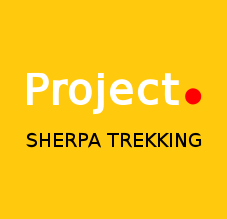General Health Tips
One should be mentally and physically fit for trekking 5 to 7 hours each day. Normally the trek may begin at lower altitude gaining relatively elevation each day. We recommend those suffering from heart and lungs problems not to attempt any strenuous or high altitude treks. Of course, consultation with your doctor regarding medical and physical fitness before trekking is always advisable.
Acute Mountain Sickness (AMS)
Also known as Altitude Sickness, AMS is the effects of altitude on those who ascend too rapidly to elevations above 3.600m. Early symptoms include headache, loss of appetite, lethargy, and sleeplessness. Do not ignore these warnings as serious symptoms can cause death within a few hours. Being young, strong and fit does not help. Medicine is no substitute for descent. If a doctor is available, he may give medicine and oxygen. The patient must go down, even if given treatment. To avoid altitude sickness you should walk slowly and drink a lot of fluid. If you feel exhausted, you have moved too fast or too high. Take time to acclimatize to each gaining altitude and give yourself rest days. If you start to feel unwell, retreat to a lower altitude immediately. It may save your life. The only cure for AMS is to descend immediately to a lower elevation.
Food
The most common meal in Nepal is Dal Bhat - Rice (bhat) with a soup made of lentils (dal) poured over it. Hill people subsist on either dal bhat or a thick paste called dhindo. This is coarse ground corn or millet, often mixed with a few hot chillies. In the northern regions people call this dish tsampa and make it from roasted and ground barley. Sherpas and other Himalayan people often mix tsampa with buttered and salted Tibetan tea. Another high-altitude speciality is shakpa, a stew of vegetables, bits of meat and dumplings.
Roti or Chappati (unleavened bread) is another frequent addition to a meal and is often substituted for rice. Of other items that may supplement a meal, the most usual is a curry made from potatoes or whatever vegetables are in season.
In Kathmandu you can get all kinds of international food you like, and also on the main treks you often can get italian or mexican dishes.
Vegetarian food
You will have no problem getting vegetarian food in Kathmandu or while on a trek. There is very little meat available in trekking lodges. Many of the dishes are vegetarian here in Nepal.
Drink
Don't drink tap water or stream water anywhere. Stick to water you have purified yourself or bottled mineral water, which is available everywhere in the lodges or teahouses along the treks. The further you are from the road, the more expensive the mineral water gets. The cheaper way to get safe drinking water is to buy boiled water.
Another way to ensure you have safe drink is to consume lots of tea or hot lemon. Throughout Nepal a cup of tea is served with a large doll up of milk and pre-sweetened with sugar, if you don't ask before to get it without sugar. It's also possible to get pure Black tea or Ginger tea.
For a small country, Nepal has a thriving beer industry. The local brands are Star, Golden Tiger, Iceberg and Gold come in 650mL bottles. Tuborg, Carlsberg, San Miguel, Kingfisher, Guinness and Shinga also brew in Nepal and distribute in cans if you want to carry beer on your trek. But normally thats not necessary, you can get beer even in the remotest villages in lodges and teahouses.
Nepal has all the international brands of soft drinks. All are made in Nepal and distributed in bottels, not cans. The bottle deposites are more than the cost of the drink, so leave a bottle behind when you quaff a Coke at a trailside stall.
In the towns you often can get Lassi, a traditional North Indian beverage made by blending yogurt with water, salt, and spices until frothy. Sweet lassi is a more recent invention, flavored with sugar, rosewater and/or lemon, mango, strawberry or other fruit juice.
Health and medical conditions
Anyone who is in good health and mentally prepared can take part in our treks. Some treks however are more strenuous and entail many days at higher altitude. Please read the trip notes carefully and pay heed to the trip gradings. Contact Project Sherpa for advice in order to make a suitable trek selection.
You are also advised to visit your Doctor (and Dentist) before travelling and to adhere to current vaccination recommendations.
You are also advised to visit your Doctor (and Dentist) before travelling and to adhere to current vaccination recommendations.

